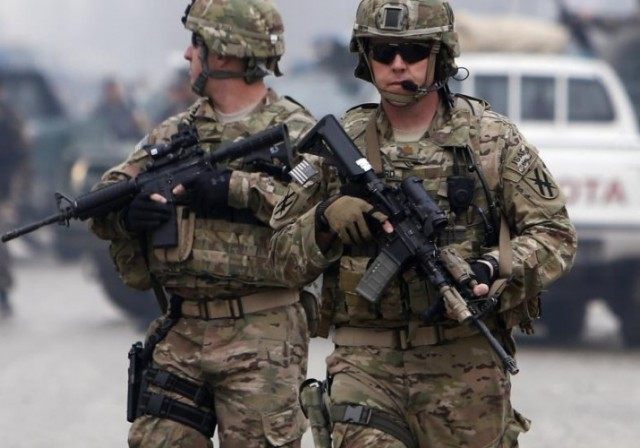The United States and NATO are contemplating deploying additional troops to Afghanistan as security conditions primarily fueled by clashes with the Taliban continue to deteriorate.
Without providing specific figures, NATO Secretary General Jens Stoltenberg revealed on Sunday that the military alliance might boost its military presence in the war-devastated country.
Meanwhile, President Donald Trump’s Pentagon is considering plans to send as many as 5,000 additional American troops to Afghanistan where the United States has been fighting the Taliban and its al-Qaeda allies for more than 15 years, since October 2001.
Although the United States military argues the U.S. war has hit a “stalemate,” Bill Roggio from the Foundation for the Defense of Democracies (FDD) recently told lawmakers America is “losing the ongoing conflict,” adding that al-Qaeda and the Taliban are growing stronger.
This year, American Gen. John Nicholson, the top commander of U.S. and NATO troops in Afghanistan, told Congress he was facing a “shortfall of a few thousand” troops in Afghanistan.
In light of the “challenging” security conditions in the country, NATO may increase its military footprint, NATO Chief Stoltenberg told German newspaper Welt am Sonntag.
NATO will likely make a decision on the troop increase and whether to lengthen deployment times by June, he added.
Last week, new reports surfaced saying the Pentagon is considering options to send between 3,000 and 5,000 American troops to advise the Afghan National Defense and Security Forces (ANDSF) in their fight against the Taliban, al-Qaeda, and the Islamic State (ISIS/ISIL) in Afghanistan.
The ANDSF includes police and army units.
On Monday, the Special Inspector General for Afghanistan Reconstruction (SIGAR) noted that the ANDSF has suffered a staggering number of fatalities.
“Afghan losses have been the greatest of all: more than twice as many ANDSF members were killed in the single year of 2016 than U.S. forces in Afghanistan have lost since 2001,” notes SIGAR, a U.S. watchdog agency, adding:
Afghanistan remains in the grip of a deadly war. Casualties suffered by the Afghan National Defense and Security Forces (ANDSF) in the fight against the Taliban and other insurgents continue to be shockingly high: 807 were killed in the first six weeks of this year. Likewise, civilian casualties in 2016 were the highest since the United Nations Assistance Mission in Afghanistan began reporting them in 2009.
Moreover, SIGAR points out that security incidents, primarily fueled by battles with the Taliban, have reached record levels, noting that most of the attacks continue to take place along the Afghanistan-Pakistan border, home to strongholds held by the Taliban, al-Qaeda, and ISIS.
“Security incidents throughout 2016 and continuing into the first quarter of 2017 reached their highest level since UN reporting began in 2007,” reports the watchdog agency. “Armed clashes between the security forces and the Taliban comprised 63% of all security incidents in Afghanistan during that period and marked a 22% increase from the same period in 2015–2016.”
Citing the United Nations, it adds, “During the last year, half of all recorded security incidents continued to occur in the southern, southeastern, and eastern regions [along the Afghanistan-Pakistan border].”
The Afghan government controls about 60 percent of Afghanistan, insurgents (primarily the Taliban) 11 percent, and the remaining 29 percent are “contested,” reveals SIGAR.
President Donald Trump has inherited security chaos in Afghanistan — a stronger Taliban that controls more territory than at any time since the war started more than 15 years ago, an ISIS presence in a region already awash in jihadist groups, and historically high production and cultivation of opium and heroin.
The Taliban and likely other terrorist groups in the country use the lucrative profits from the opium business to fund their terrorist activities.

COMMENTS
Please let us know if you're having issues with commenting.